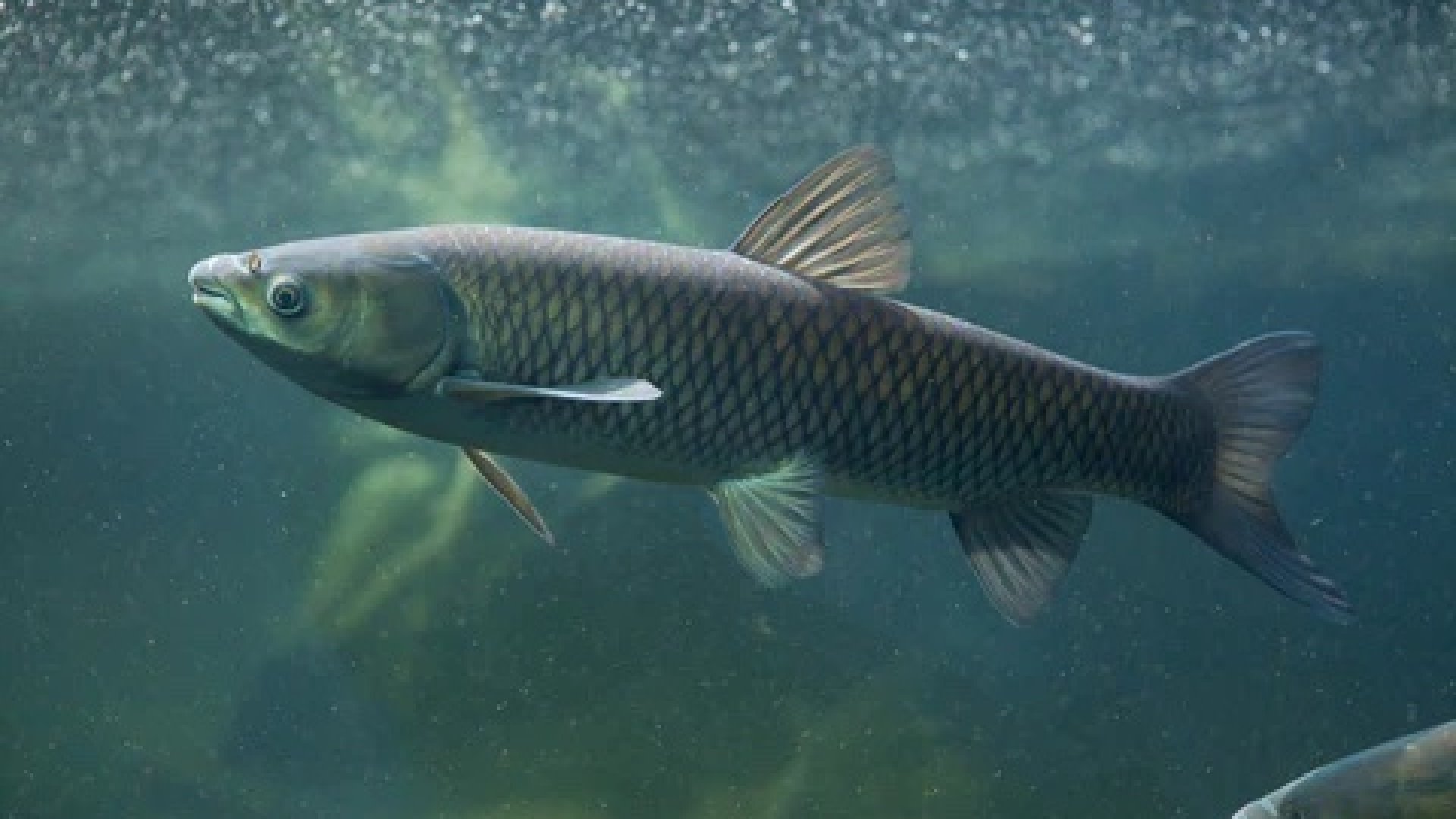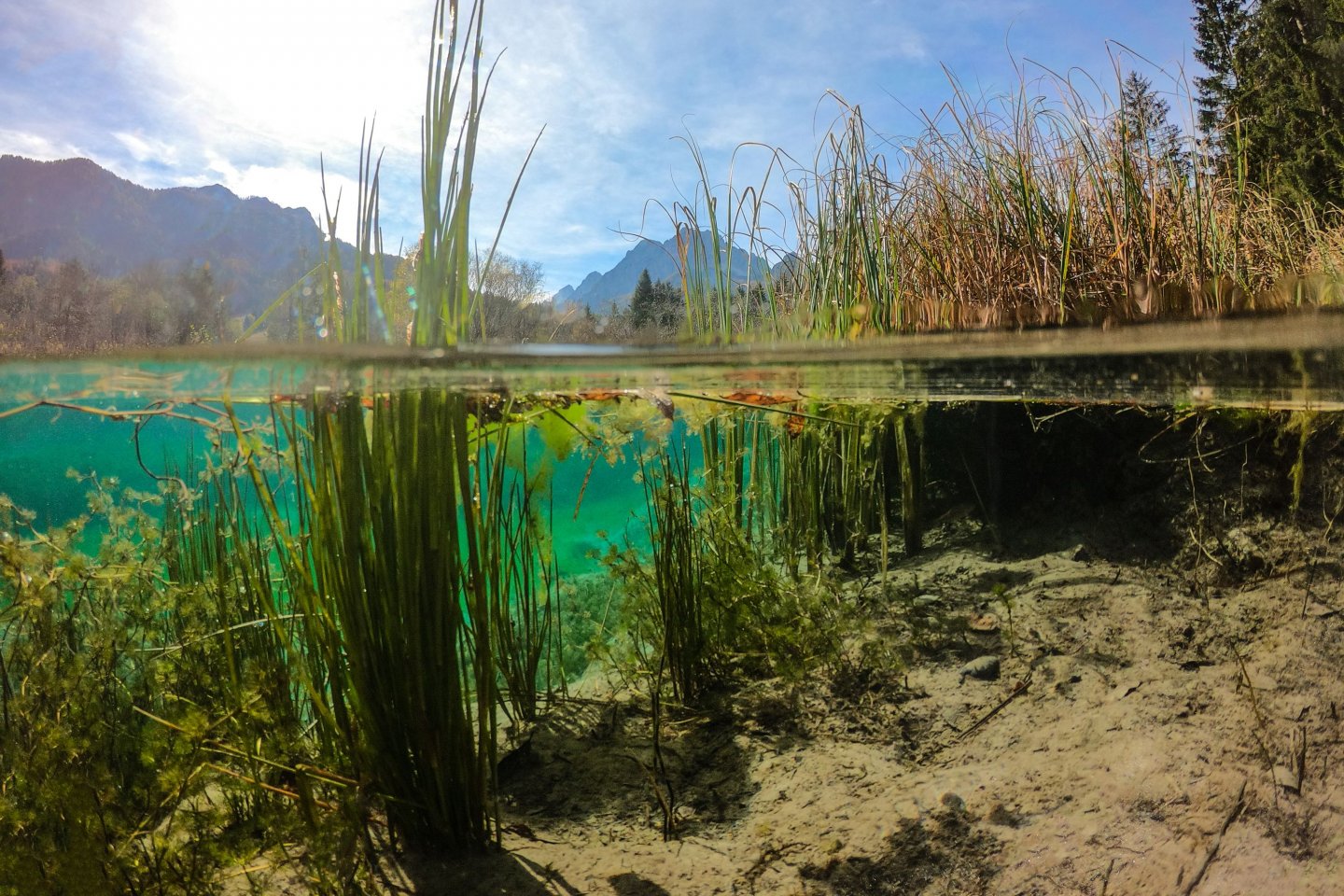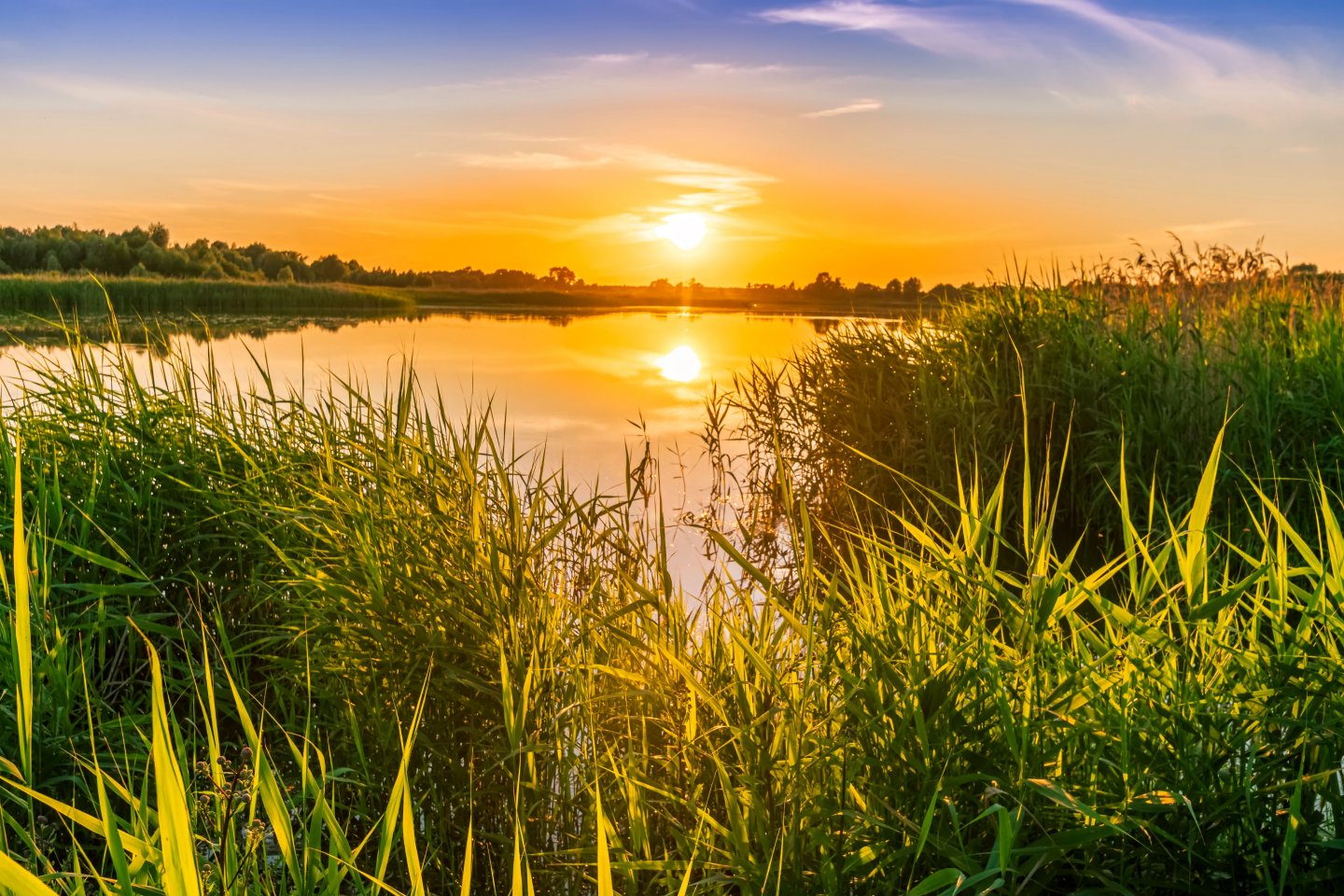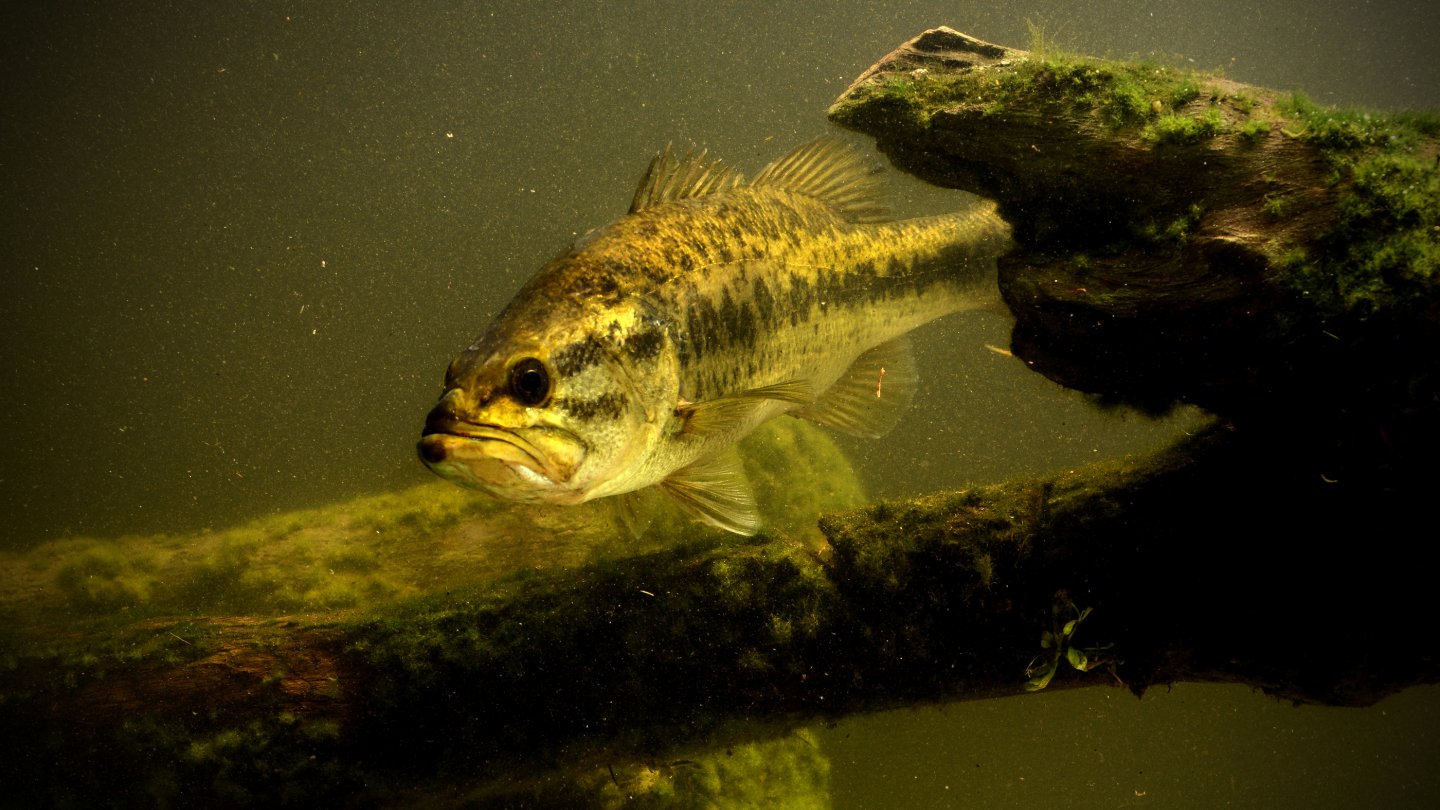
Grass carp are a non-native herbivorous species. As one of the largest members of the minnow family, these fish are silvery to olive in color with large scales along their body. Native to eastern Asia, they were originally imported in the ‘60s to help control aquatic weeds in aquaculture facilities in Alabama and Arkansas. Unfortunately, some grass carp escaped into open water and began to pose a threat to native plants and animals with their tolerance for turbid water, ability to spawn in rivers and rapid growth.
While they are well known for their ability to consume aquatic weeds, the likelihood of widespread grass carp stocking was limited by concerns for their effect on native ecosystems. Progress was made in the ‘80s when methods to create sterile fish were developed and honed. Using heat or pressure, the eggs can be treated to retain an extra set of chromosomes, creating a triploid fish. These genetically altered fish are sterile so there’s little threat to native ecosystems. These sterile fish can safely be stocked in ponds and lakes.


Many states legally allow the sale of sterile grass carp. These sterile fish are routinely and legally stocked to control aquatic vegetation as an alternative to chemical control. These sterile fish can be used to help manage aquatic weeds and pose no threat of reproduction. Like other animals, grass carp will not control all types of aquatic weeds - they prefer some varieties of plants over others. So why do we stock them if they don’t eat everything? When stocked at the correct rate, sterile grass carp do play a role in integrated pest management. They are not a standalone control method but can be a useful strategy to employ
Jones Lake Management was founded in response to Ohio’s legalization of the triploid grass carp. We are proud to offer our clients a legal, sterile grass carp to help them manage their aquatic weeds. Every lot of our triploid grass carp fish are inspected and certified sterile by U.S. Fish & Wildlife Service prior to their sale. Protecting native aquatic ecosystems and improving ponds and lakes remains a top priority of Jones Fish. We work with USFWS and State Departments of Natural Resources to ensure we are responsibly stocking fish and compliant with all known regulations.


